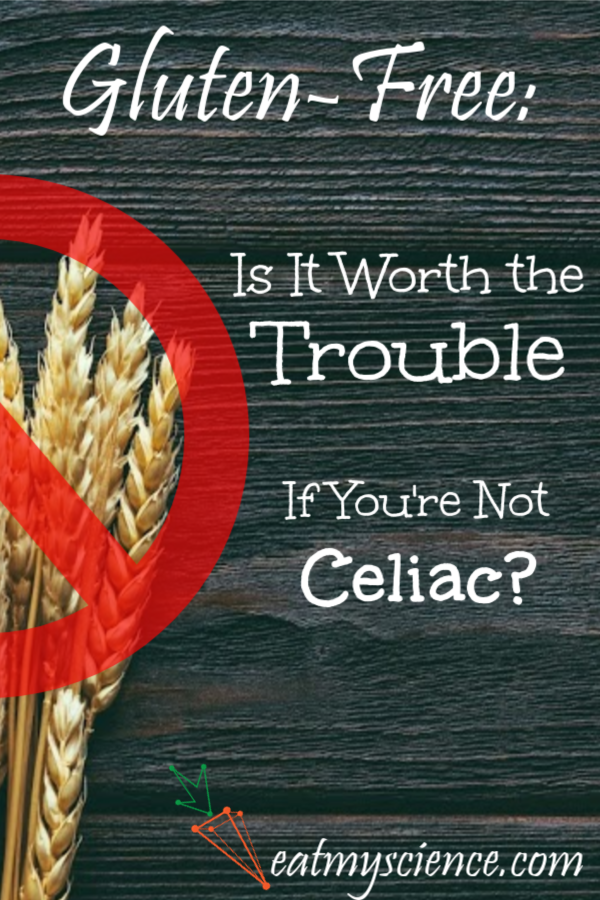Gluten-free is a major buzzword and has been for the last 2 decades.
And for those with celiac disease, hallelujah! Gluten-free foods litter the aisles of the grocery store, restaurants have gluten-free options even for pizza, and bloggers and chefs share their gluten-free recipes for your perusal.

Celiac sufferers wish there was this much hype 60 years ago! (Although the banana industry was just fine with the way things were…)
For those without celiac disease, the other 99% of the population, we don’t need to be concerned with gluten.
Wait, WHAT? Don’t like 18,000,000 of us have a gluten sensitivity?
Yeah, not so much. What we do have is an overabundance of processed foods, which can make you feel like crap for many reasons.
What happens when you go on a gluten-free diet?
According to this article on Healthline, you stop eating:
- bread
- pasta
- crackers,
which are all processed foods, and anything that contains
- wheat bran, germ, or starch
- and other grains such as durum, semolina, spelt, barley, rye, and bulgur,
ingredients that you pretty much only find in processed foods.
What you CAN eat is
- Lean beef
- Fish
- beans and other legumes,
- fruits and vegetables
- eggs
- rice, etc.
Look at that, a diet of whole foods avoiding most processed foods. What we have here is a DIET EVERY HUMAN SHOULD FOLLOW, celiac or not.
Let’s bring it back around to your so-called gluten intolerance and do the math. Are you sure it’s the gluten?
1 percent of the population in the US has celiac disease, which requires a gluten-free diet. Statistically speaking, if I chose a random person out of the entire population, let’s say, YOU, there is a 99% chance that you will NOT have celiac disease or require a gluten-free diet.
But wait. A diet full of whole foods and avoiding processed foods is a health requirement for 100% of the population. Statistically speaking, if I chose a random person (again, let’s say YOU) there is a 100% chance that you will benefit from a gluten-free diet.
The benefit for those of us who do not have an allergic reaction to gluten comes from an increase of whole foods and a decrease of processed, unhealthy foods. This is, in essence, what every single healthy diet recommends.
The conclusion: we should all be on a diet, and it doesn’t really matter which one. If a gluten-free diet makes you feel good, please continue. Whole food is the way to go.
Celiac disease is a very serious autoimmune disease that is akin to having a peanut allergy, in the way that even a tiny bit of gluten can cause a major reaction. Please respect people who have a true allergy to gluten, and don’t eat their cookies at parties.
Leave a Reply